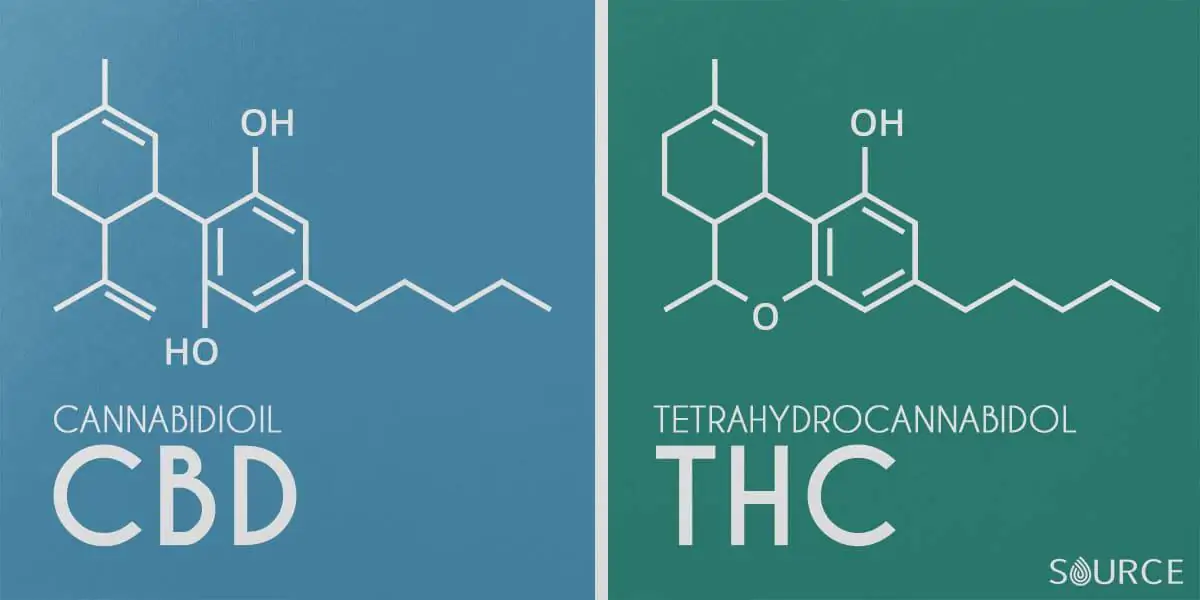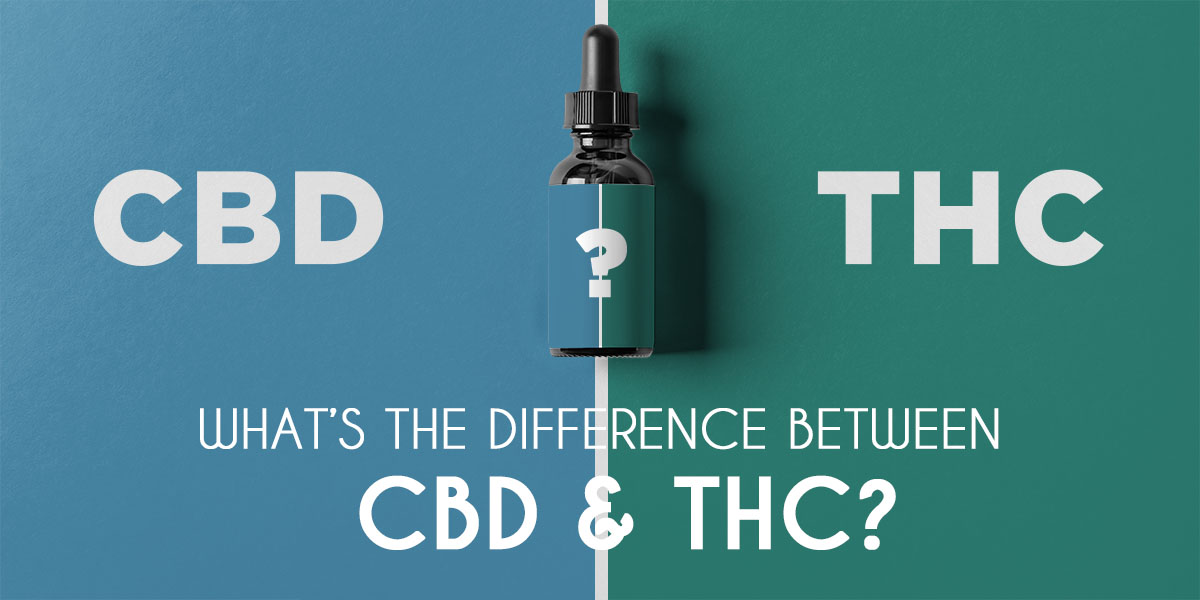CBD Oil for Health
CBD vs THC: Understanding the Difference
CBD vs THC: the difference between these two is one of the biggest sources of confusion and misunderstanding.
So many people still associate one with the other or think they’re both the same.
And sure, they’re similar in some ways, but they also have a few major – and important – differences.
CBD vs THC
Tetrahydrocannabinol (THC) and cannabidiol (CBD) are the 2 primary cannabinoids that occur naturally in the cannabis plant. Cannabinoids are a class of diverse chemical compounds that act on cannabinoid receptors in the endocannabinoid system.
There are over 480 different compounds present in the cannabis plant, and at least 113 of them have been classified as cannabinoids.
So, how do these 2 cannabinoids differ?
RELATED: Are Hemp and Marijuana the same? The confusion exists here too. Check this out.
The Chemical Structure
There’s a lot of fancy science behind these two plants. CBD and THC have the same basic chemical structure, made up of:
- 21 carbon atoms
- 30 hydrogen atoms
- 2 oxygen atoms.
The difference between CBD and THC is how those atoms are arranged. Take a look:

As you can see, the difference in the arrangement of the atoms is minor, but these minor differences can have a big impact. First of all, the chemical structure impacts how CBD and THC connect with the endocannabinoid system and, thus, how they affect your body.
How they Affect the Body
Both CBD and THC work with cannabinoid receptors that release neurotransmitters in your brain. This is how they affect things like your mood, sleep, pain, and even your memory.
For example, CB1 receptors exist on nerve fibers outside of the central nervous system and communicate with the brain. Cannabinoids stimulate CB1s on pain sensory neurons. This impacts how you feel (or don’t feel) pain.
Cannabinoid receptors are activated by a neurotransmitter called anandamide, which is actually a cannabinoid, but one that your body makes. THC mimics the actions of anandamide, meaning that THC binds with cannabinoid receptors and activates neurons, which causes the changes you experience when you use it.
THC is considered an agonist of CB1 and CB2 receptors. It directly binds to the receptors and activates them. THC tends to favor CB1 receptors because it fits very well inside them and therefore is able to stimulate a strong physiological reaction.
On the flip side, CBD is considered an indirect antagonist of agonists. It doesn’t bind like THC does, and instead sits imperfectly inside the receptor, preventing other substance, like THC, from binding to them.
So, CBD oil works by indirectly impacting the various receptors, not by binding to them.
RELATED: Can you develop a tolerance to CBD or THC? Check this out next.
Psychoactive Properties of CBD vs THC
Again, much of the confusion about CBD vs THC surrounds “getting high.”
THC is the main psychoactive component of the cannabis plant. It’s what causes the ‘high’ associated with cannabis. When you think of cannabis use and the resulting feelings of relaxation, an altered sense of sight or hearing, or the “munchies,” you’re thinking about THC.
The effects of CBD are different. Because it’s an indirect antagonist of agonists, instead of making you feel high, CBD actually blocks THC’s intoxicating effects.
So, while some CBD products do contain trace amounts of THC, it’s typically not enough to have any psychoactive effect.
In fact, in 2017 the World Health Organization reported that while THC can impair cognitive performance and psychomotor abilities, “clinical studies have reported that even high doses of oral CBD do not cause those [psychoactive] effects that are characteristic for THC and for cannabis rich in THC.”
Side Effects
There are very few side effects with either CBD or THC, and the ones reported have been minor.
According to the World Health Organization (WHO), CBD is safe in large quantities, and the only potential side effects are mild and temporary. These are the most common ones:
- Tiredness/fatigue
- Decreased appetite
- Dry mouth
- Diarrhea
THC may also cause some temporary side effects. These can include:
- Dry mouth
- Bloodshot eyes
- Slower than average response times
- Memory loss
- Poor coordination
- Increased heart rate
RELATED: There is research on the side effects of CBD. If you want to know more, read this.
In Summary
Sure, CBD and THC technically come from the same plant, but that doesn’t make them the same. Both are incredibly valuable when it comes to natural medicine, but again, that doesn’t make them the same.
Now, the next time someone asks you, are trys to tell you different, you can fill them in!

